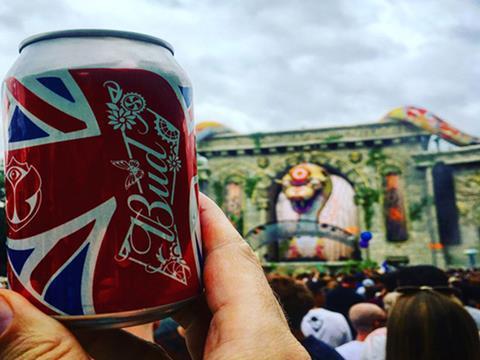
Responding to growing demands for the flexibility to facilitate shorter runs and alternate versions in beverage packaging, Tonejet will be spotlighting its digital printing direct to can technology at InPrint in Munich on 14-16th November.
Cyclone, Tonejet’s direct-to-can digital printer featuring inbuilt Rockwell iTRAK transport system, has been designed to remove the barriers associated with small batch canning and includes features and capabilities adapted to the requirements of today’s print environment – a unique approach to beverage can production.
“We’ve chosen to launch Cyclone at InPrint as the show provides us with a great opportunity to discuss developments, changes and requirements within the industry” comments Marvin Foreman, sales manager at Tonejet, the only manufacturer of advanced electro-static drop-on-demand digital print engines. “We will demonstrate how Cyclone can revitalise production capabilities and create flexible run-length opportunities.”
“This system brings a new level of competitiveness to beverage can production for short to medium runs as well as ultra-short runs” continues Foreman. “Built to accommodate any design at any run length, Tonejet’s direct-to-can printing capabilities provides brands with an opportunity to manage special or one-off print runs and easily accommodate for events or festivals, social media campaigns and competitions or even limited-edition beverages. We recently worked with Anheuser-Busch InBev (AB InBev), the world’s largest brewer, to produce customised cans for a large music festival they had sponsored.”
Using Tonejet direct-to-can printing capabilities, AB InBev created 10,000 customised cans for Tomorrowland, the world’s biggest electronic dance music festival, bringing together some 400,000 visitors from around 200 countries.
Tonejet, working together with AB InBev, printed 15 different can designs featuring national flags across just 10,000 units. The cans were produced in the exact quantities required, without the minimum-order restrictions associated with traditional printing. The largest print run was 1400 cans, while the shortest was just 15 cans.
Unlike analogue processes, the low cost of digital can production means that specially brewed and branded products can be produced cost effectively and quickly and every single can could be produced with a different image if required.
Long lead times and minimum order requirements are eliminated, and as the system can print multiple jobs without stopping, product time-to-market is significantly decreased too. The cost per print is comparable to traditional can decorating processes and the digital offering means ‘one is the new minimum’.













